9 Best Platforms to Sell Your Products Online
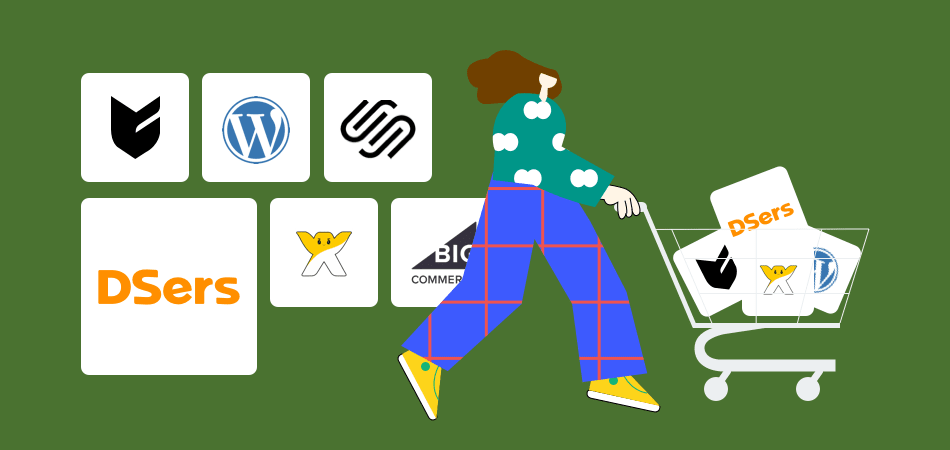
The increasing number of sellers from around the world means customers now have more choice than ever before. Online sales platforms are an excellent place for companies to launch their goods because they have access to a large customer base.
Different selling platforms are good for different types of business, so if you're a seller, which site is right for you?
9 Best Platforms to Sell Your Products Online
No matter what your target market is or what you're selling, there's always a platform that's perfect for you to sell online. We've done our research and gathered the best selling platforms and marketplaces for you to sell your products online.
1. Sell on Your Own Online Store
If you want to make more money and grow a business that will be a long-term asset, you must consider building your own website.With this option, you can develop your own brand. So why don't you try channeling those efforts into your own business?
Start your e-commerce business anywhere, anytime with Shopify. It has empowered more than 1 million businesses in more than 175 countries to generate more than $200 billion in sales.
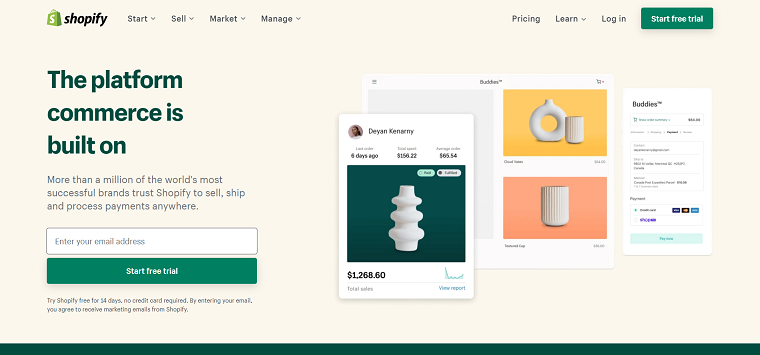
Shopify helps you create your store with powerful tools and apps like DSers that source products from AliExpress, drive sales, fulfill the orders, manage the store, and attract more customers.
| Get Started Now to Grow Your Online Business with the Best AliExpress Dropshipping Tool - DSers! |
You can build your store from scratch with a fresh idea, or sell what sells most (such as food and drink, beauty and cosmetics, jewelry, clothing, etc.).
Sell Globally
There are plenty of options when it comes to online marketplaces, so where should you start? Here are our top 3 global marketplaces to sell your products online .
2. Amazon
Amazon is a reliable website, visited by more than 20.6 million buyers every month. Selling on Amazon automatically increases the trust when the shoppers purchase. Such a large number of visitors means your product is more likely to be seen and bought.
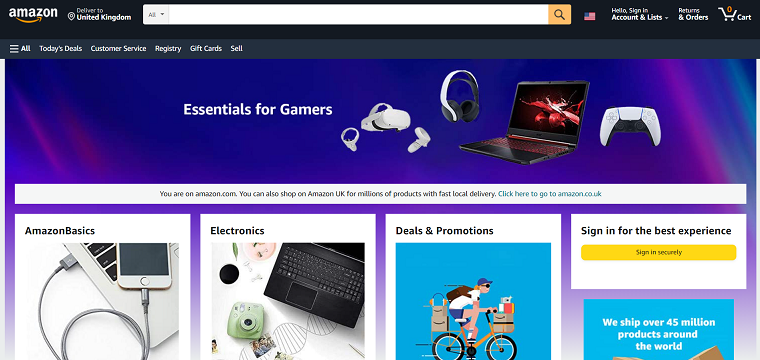
Amazon is perfect for those who tend to sell a lot of products in bulk and need to reach a larger audience.
However, the marketplace is also fierce enough. Therefore, your products should be competitively priced to attract customers while still being profitable.
3. eBay
When talking about best selling platforms, we often compare eBay with Amazon. eBay has been on the market since 1995 and you can find almost anything on the site. With eBay, you can tap into a global customer base of 168 million active buyers.
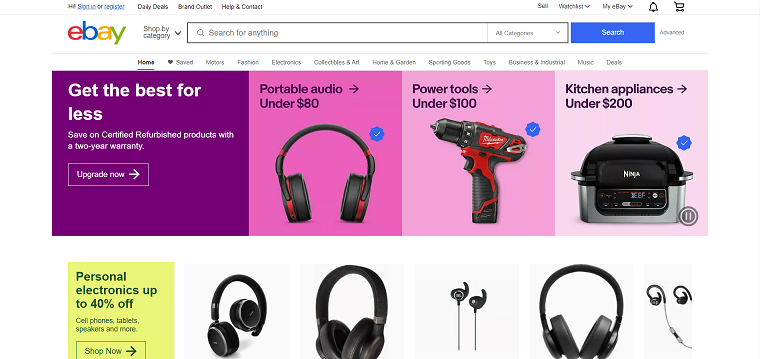
If you want to sell on eBay, it's important to consider the cost of selling. To publish a product, you pay a refundable fee, and another "insertion" fee if you want to publish a similar product in another category.
eBay also charges you a "final value fee," which is a specific percentage of the selling price of your product and a percentage of shipping. These fees will vary depending on what your item is, the amount and type of classification, and shipping.
4. Bonanza
Bonanza, which is based in Seattle, is relatively new to e-commerce, but it's doing very well. Bonanza does not charge any fee to list your products on its website. You can also integrate Bonanza with selling platforms like Shopify to manage and sell products more easily.
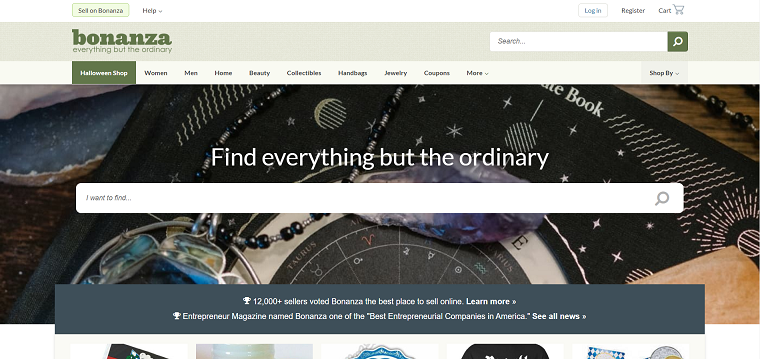
In short, Bonanza is an online marketplace with tens of thousands of sellers from around the world. The site offers new and used products in each category. As a buyer, you have the opportunity to purchase unique and ordinary items. As a seller, it's basically the same as eBay, except it doesn't have as many seller fees.
Sell Locally
Sometimes you just want to give away the unwanted goods but don't want to sell them online and pay for the expensive shipping fee. Then sell locally fits you better.
5. Facebook Marketplace
People can access this section directly from their Facebook to see sales in their neighborhood. The products are also very diverse and customers can easily view product details. In addition, Facebook has partnered with popular marketplaces like Shopify to promote online purchase on the platform.
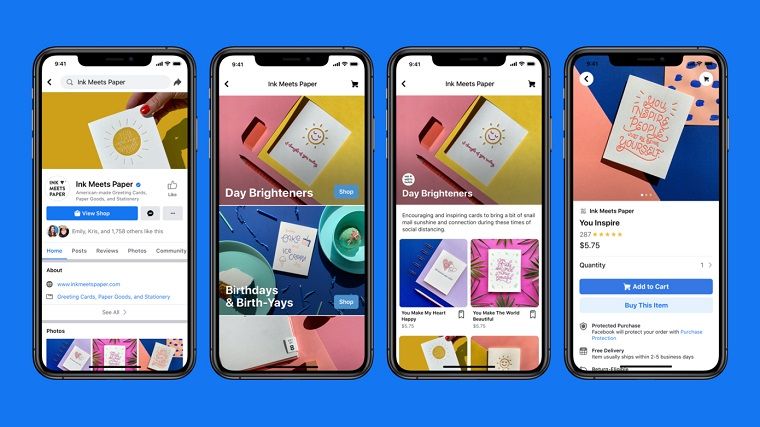
As long as you know how to sell on Facebook Marketplace , you can quickly launch the products in this market and increases your sales.
6. Craigslist
Using Craigslist is easy. It used to collect information about local events in the San Francisco Bay Area. It is now the online sales platform of choice for many individuals and even some brands.
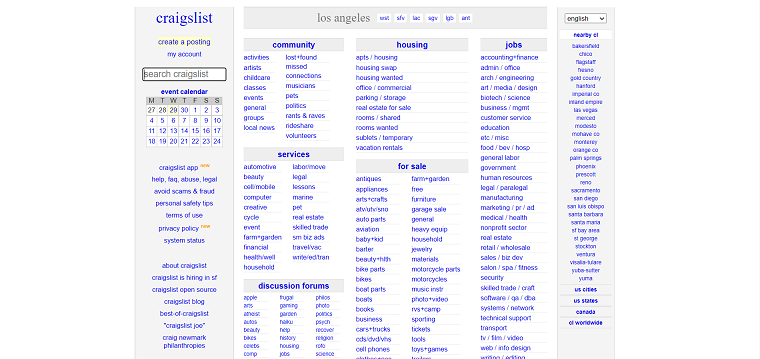
The site is perfect for those who want to sell locally and trade in person. In addition, some people can buy low and sell high on Craigslist, which can translate into market arbitrage profits.
7. Nextdoor
As the name suggests, you can sell to people in your area. It is considered more reliable than Craiglist because sellers need to sign up for an account. There are no listing fees or commissions, but shipping is up to you. You need to deliver the goods in person.
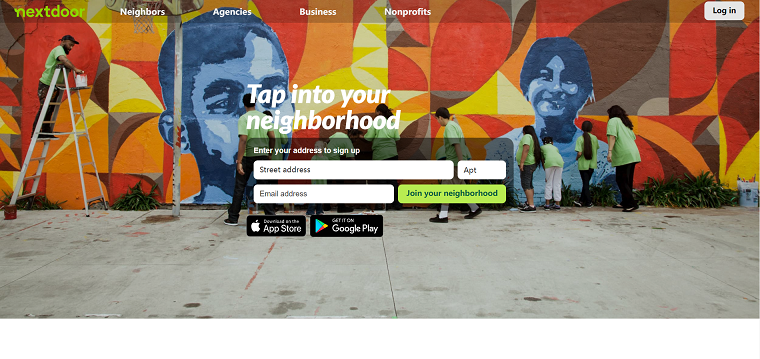
Nextdoor will allow anyone to browse the Free Find section without creating an account. If you see an item that catches your attention, you can sign up to contact the neighbor who gave it away.
At the same time, Nextdoor is renaming the for sale and free sections as Nextdoor discovered sections. The company says it has reconfigured the feature to make it a more personalized recommendation and categorization experience.
Sell Handcrafts & Vintage Collectibles
If you want to sell handicradts or antiques online, there are platforms for you too.
8. Etsy
Etsy is the premier marketplace for handcrafts and antique goods. In 2015, it began to include manufactured goods developed by manufacturers, but only for specific accounts in the marketplace.
As of the second quarter of 2020, there were more than 60 million buyers on Etsy, making it a profitable way to start online sales.
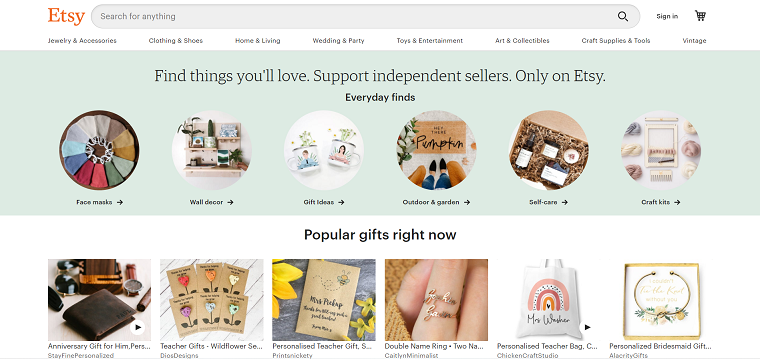
When you make a sale, you pay a transaction fee of 5% of the display price, plus the shipping and gift packaging fees you charge. If you are not familiar with online sales, Etsy may be a good place to sell goods. You'll have access to an active buyer network, pop-up storefronts and tools to help you market your business on the platform.
9. Ruby Lane
Ruby Lane is designed to bring together sellers and buyers of art, antiques, antique collectibles and jewelry, much like marketplaces such as Etsy and Bonanza. The online sales platform has 1.1 million unique visitors a month, impressive for a niche market.
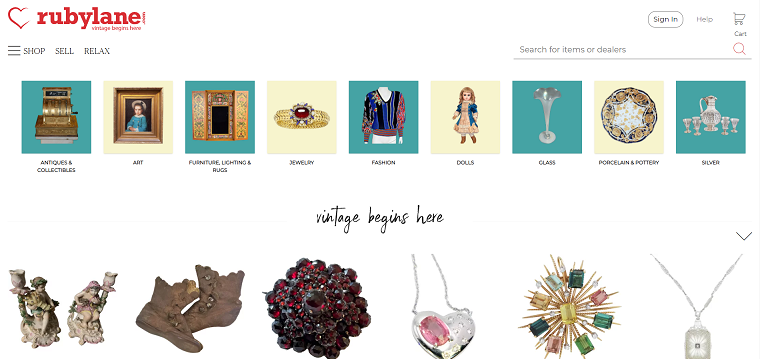
There is no charge to set up shop on Ruby Lane, and the platform does not charge you to publish. However, for stores with 50 items or more, you'll have to pay $54 a month for maintenance.
Maintenance fees vary according to the number of items you list. In addition, Ruby Lane charges a service fee of 6.7 per cent on the total purchase order amount, excluding sales tax.
Final Word
Whether you're just starting a new e-commerce business or have been involved for a while, selling on online marketplaces should be a key part of your marketing campaign. We hope you can easily choose the most appropriate platform for your business with our list of 9 best platforms for selling products online.










 Company
Company
 Why Choose DSers
Why Choose DSers
 Blog
Blog
 Help Center
Help Center




 Live Chat
Live Chat